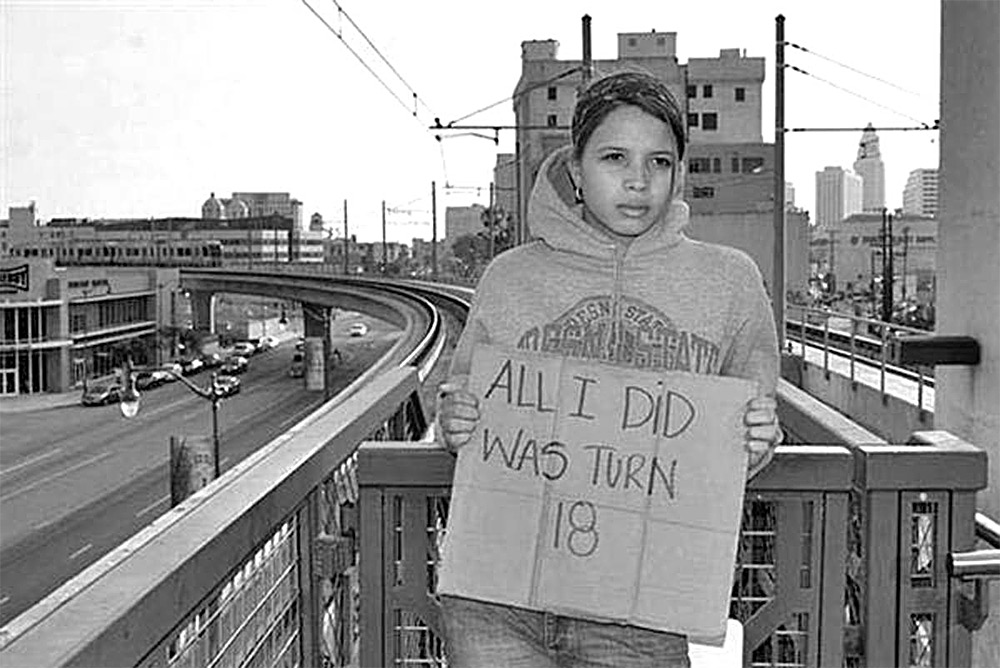MONROE – Shantel had no trouble fitting all of her earthly possessions into two trash bags. The problem was finding a place to unpack those bags – a safe place that she could call home.
Shantel was 18 years old, and she had officially “aged out” of the foster care system.
“Young people like me who age out of the system usually don’t have the luxury of having a family to help,” Shantel said. “The decisions we face every day – how we pay our bills, put food in our mouths and keep a roof over our heads – are difficult, and we have to answer them without the guidance or support of a family.”
“Aging out” is a term used to describe the process of youth transitioning out of the foster care system with no permanent family connection. Of the 400,000 children who are in foster care nationwide, approximately 25,000 age out every year without a permanent home or family to support them.
Many youth coming out of foster care are at higher risk for unemployment, poor educational outcomes, health issues, early parenthood, long-term dependency on public assistance, and increased rate of incarceration and homelessness. One in four will be incarcerated within two years of leaving foster care. One in five will become homeless. Only half will graduate from high school, and less than three percent will receive college degrees.
After evaluating the need for additional ways to expand the effectiveness of the Children’s Home mission, the PathFinders transitional living program was created in 2007.
This ministry was designed to assist 18-year-olds living at the Children’s Home to transition from high school to adult life. PathFinders was assigned to Rucker Cottage.
With an increasing number of youth aging out of foster care with no family support, PathFinders extended its ministry reach to these young people ages 18-21 in 2011.
Last month PathFinders expanded to include a second location on campus at Hope Cottage.
Beth Green, LBCH Director of Church and Community Ministries, has previous experience in working with youth “aging out” of state foster care.
She said, “Although Louisiana Department of Children and Family Services works diligently to assist foster youth with transition into adulthood, funding is limited and resources are scarce. With the addition of another PathFinders cottage, we can offer hope and help to some young adults that might otherwise become a statistic.”
PathFinders provides safe housing with cottage parents in residence, meals, medical care, and life skills at no cost. Residents must be drug/alcohol free, working and/or going to school, responsible for cottage chores, and responsible for developing an exit strategy.
All young people in PathFinders are also required to attend church every week.
Perry Hancock, Children’s Home President, stated, “We are always asking the question, ‘Where are the children who need us, and how can we meet their needs?’ There is an increasing number of young people turning 18 with no place to go and no family to support them. Expanding our PathFinders ministry will provide them with a safe place to live and the love, care and hope that can only be found in Christ.”




